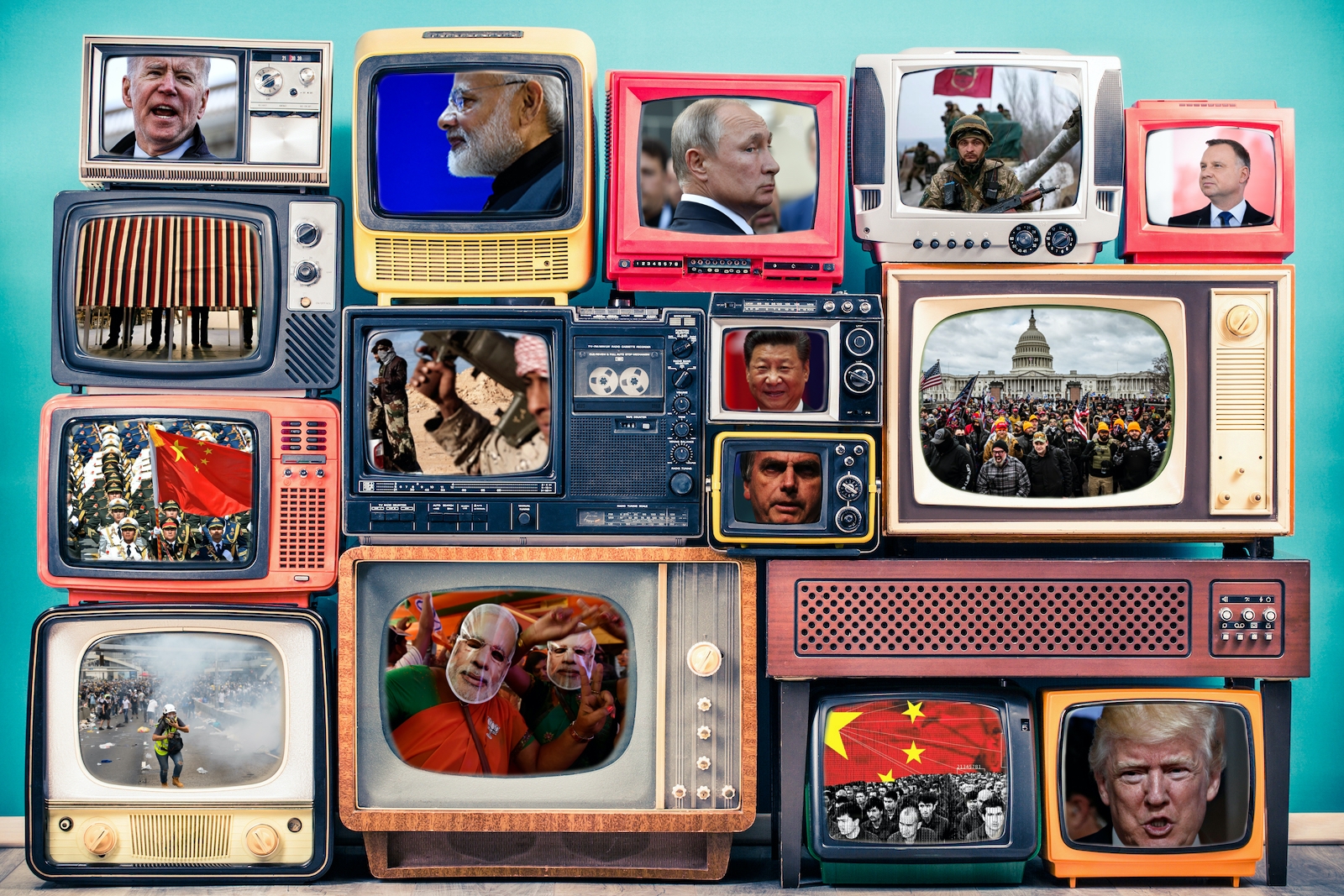
The Case for Democratic Optimism – and Patience
The death of the democratic trend has been much exaggerated. Whilst there have been recent setbacks, in the long run, democracy is still in the ascendent. Democracy will, however, only grow globally if foreign policy elites can be patient, don’t confuse form with substance, and work with local leadership structures.
U.S. President Joe Biden echoed a growing opinion amongst Western policymakers when he warned of “sustained and alarming challenges to democracy” in a virtual summit designed to protect it in early December. Almost a year on from the first coup attempt in modern U.S. history, it is widely believed that democracy globally is under siege and on the back foot. Proponents of this view can point to backsliding democracies of all stripes. EU-member Poland has undermined the independence of its judges. India, the world’s largest democracy, has repeatedly harassed journalists and changed its citizenship law in an attempt to further exclude its Muslim minority. Brazil’s Jair Bolsonaro has hinted he won’t accept coming elections if he loses. This is to say nothing of two democracies – Ukraine and Taiwan – currently being threatened by their large, authoritarian, and eminently more powerful neighbours. As Anne Applebaum succinctly puts it, it looks like the bad guys are winning.
This doomsaying is not only misguided but could well do more harm than good. We should remember that democracy is still ascendant globally while acknowledging that further growth is inherently likely to be slow, difficult, and with periods of retreat. Ensuring its future and continued expansion, however, requires working with local already existing governance structures to ensure its continued dominance, instead of attempting to impose Western democratic models of governance in places where they have no precedent.
A cautious but optimistic sense of perspective is needed. Democracies control the commanding heights of global wealth, institutions, and power. The G7 alone still accounts for just under half of global GDP. When other democracies are included, this rises to well over two-thirds. Globally, democracies continue to outnumber autocracies. Democracies are not a beleaguered minority holding out against the dimming of the light – they are still the dominant global force.
This becomes even more apparent when an appropriate historical scale is applied. In 2020, Freedom House said the number of fully free democracies dropped to 82. This was the lowest level since 2005. However, in 1973 – when records began – the number was only 44. In historical terms, the current proliferation of democracy is a staggering achievement. Billions of people now enjoy rights unprecedented in history. The narrative of backsliding only makes sense if the present day is compared to an unparalleled height of achievement rather than in the context of a long ascendancy. Such a narrative also risks discounting imperfect democracies that, whilst flawed, are still not autocracies and better than their comparable past.
This is not to deny the seriousness of the threat that democracy now faces. However, it is to judge its plight by a more realistic standard. With a more optimistic mindset, we can remember three things: that democracy is a slow, arduous process prone to occasional setbacks, that it is largely driven by domestic actors, and that foreign policy elites must be accordingly realistic in their expectations and methods for democracy promotion.
Democracy is difficult. It involves long struggles of contention between politicians, publics, and institutions. It is famously difficult to convince entrenched interests to surrender their power. And it is one of the oldest political truisms that those who gain power are often corrupted by it. It took centuries for the oldest democracies to become worthy of the label and they arrived there through civil wars, turmoil, and drawn-out politicking.
Across history, we can see remarkably few cases when a fully functioning democracy was instilled from abroad – Japan and Germany spring to mind – and only after huge conflict and loss. Instead, for democracy to have deep roots within a nation, it is the people themselves that must construct their own versions of institutions, tell themselves their own narratives legitimising their governments and resolve their own divides internally.
There are similarly plentiful modern-day examples of how tricky democracy can be. In the case of Libya, after the ousting of strongman Muammar Qaddafi more than 10 years ago, the march towards democracy has been repeatedly mired in conflict. Outside interference – when it hasn’t been actively aiding the conflict – has been ineffectual. Years of internationally encouraged dialogue, from Berlin to Paris, have wielded little to no concrete results.
These insights from the Libyan case – and many others like it – are ones which Biden would do well to consider. International summits on democracy are well-intentioned but run the risk of unfairly labeling anything deviating from a Western pattern as hopelessly despotic. In his recent summit. there was a great deal of difficultly in choosing the participants. Many countries felt there was an implicit choice involved between China and the U.S. if they chose to attend. The framing of democratisation as a geo-political contest to be won within the timespan of presidencies is incorrect – it is domestic, will take place in generations, and will largely happen independently of the West.
The West must reframe its objectives and methods accordingly, knowing its limits and working with local actors to accomplish this aim. In the past, both the left and right blamed the West for everything that happened. This quasi-narcissistic view cannot continue. Unrealistic perfection must be avoided as such a pursuit either leads to ill-considered interventions to install cookie-cutter Western-style systems or to apathy as burgeoning democrat activists that don’t conform to Western standards.
Instead, democracies such as the United States should learn to rely and focus on local governance structures with democratic potential rather than attempting impossible and unwelcome wholescale change. The battle for democracy is a battle fought at the local and national levels. We can help activists and nascent democratic institutions but we cannot create them. Attempts to do so result in Potemkin democracies that do not have deep roots in their host societies. Democratic institutions must not only speak the language of their country but have its accent.
Again, there are examples of where mistakes have been made. Afghanistan is less democratic than ever despite years of outside support due to a focus on the form of its institutions rather than their nature. Libya will be the same if local and historically rooted structures, such as for example the 1951 constitution and with it the Monarchy, are not strengthened. We must not repeat these errors as the cancellation of the December elections in Libya still looms fresh. These elections – doubtless to be contested even when they do eventually take place– are still an opportunity for progress rather than for an encouragement to fatalism.
Democracy is not defeated, just on a temporary and perhaps foreseeable back foot. Democracies can and will get out of this current setback if they remember to think in the long term, reflect on their own difficult arrivals at democracy and apply these lessons to other countries.

